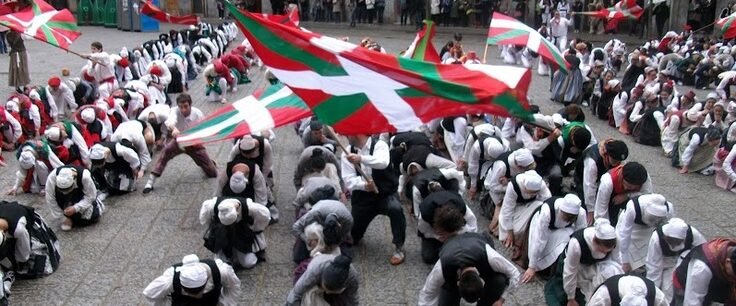The Rich Heritage of Basque People
The heritage of the Basque people is a fascinating tapestry woven with unique traditions, languages, and identities that distinguish them within Europe. The Basque people, originating from the Basque Country straddling Spain and France, possess a profound history that is both mysterious and captivating. This indigenous group traces its roots back to prehistoric times, and their distinctiveness persists through the ages.
Central to the Basque identity is their language, Euskara. This ancient language stands as one of the oldest spoken languages in Europe, and intriguingly, it has no known relatives, making it a linguistic enigma. The preservation and revitalization of Euskara have become paramount in modern times, with dedicated educational programs and cultural initiatives ensuring the language thrives. Schools and community centers across the Basque Country emphasize Euskara, promoting its use among newer generations and safeguarding a vital element of Basque heritage.
Traditional Basque cuisine is another pillar of their cultural identity, known for its rich flavors and locally sourced ingredients. Dishes such as pintxos, elaborate small bites often enjoyed in convivial gatherings, and hearty specialties like marmitako, a fishermen’s stew, exemplify the culinary prowess of the region. These gastronomic traditions are celebrated events that bring communities together, reflecting the importance of social gatherings in Basque culture.
The distinctiveness of Basque culture extends to their clothing and customs. Traditional attire, like the beret and espadrilles, symbolizes the pride and resilience of the Basque people. Cultural events, such as Aste Nagusia (The Great Week) and various rural sports competitions, are integral to Basque life, showcasing their unique practices and fostering communal bonds.
Historically, the Basque region has faced numerous challenges, yet its cultural essence has remained remarkably resilient. From the struggles during the Spanish Civil War to the ongoing quest for autonomy, the Basque people’s determination to preserve their identity has been unwavering. This enduring spirit serves as a testament to the rich heritage of the Basque people, ensuring their culture continues to thrive amidst changing times.
Celebrating Basque Gatherings and Festivals
Basque gatherings and festivals serve as a vibrant testament to the region’s rich cultural tapestry and are pivotal in preserving its unique identity. One of the most prominent celebrations is the Aste Nagusia (Big Week) in Bilbao, an event that marks the high point of the city’s social calendar. Held annually in August, Aste Nagusia attracts thousands of visitors with its diverse array of festivities including concerts, parades, fireworks, and traditional Basque sports such as pelota and stone lifting. The event encapsulates the essence of Basque communal spirit and provides an immersive experience into local traditions.
Another significant festival is the Tamborrada (Drum Parade) in San Sebastián, celebrated every January 20th. This event dates back to the 19th century and pays homage to the city’s martial history with a 24-hour drumming extravaganza. Participants, donning traditional Basque attire, march through the streets to the rhythm of drums, creating an electrifying atmosphere that captivates both locals and tourists. The Tamborrada embodies the collective pride and resilience of the Basque people, making it a cherished annual ritual.
While not exclusively Basque, the Running of the Bulls in Pamplona has become an iconic symbol of regional festivity. This daring event is part of the San Fermín festival, held every July, and attracts adventurers from around the globe. Though controversial, it remains an integral aspect of Basque and Navarrese tradition, drawing attention to the region’s profound cultural heritage.
Integral to these gatherings are traditional Basque dances and music, which play a vital role in community bonding and cultural preservation. Instruments such as the txalaparta and trikitixa often accompany dance performances, weaving a melodic narrative of the Basque past and present. These musical traditions are not only performed during festivals but are also taught to younger generations, ensuring their continuity.
Moreover, these festive gatherings significantly contribute to cultural tourism in the Basque Country, attracting visitors eager to experience the region’s distinct customs. They also play an essential role in fostering a sense of pride and belonging among Basque youth, bridging generational gaps and sustaining communal harmony. Through their vibrant celebrations, the Basque people continually reaffirm and celebrate their identity, making these festivals a cornerstone of Basque cultural life.



